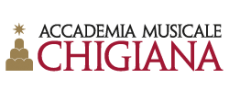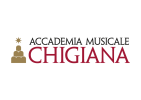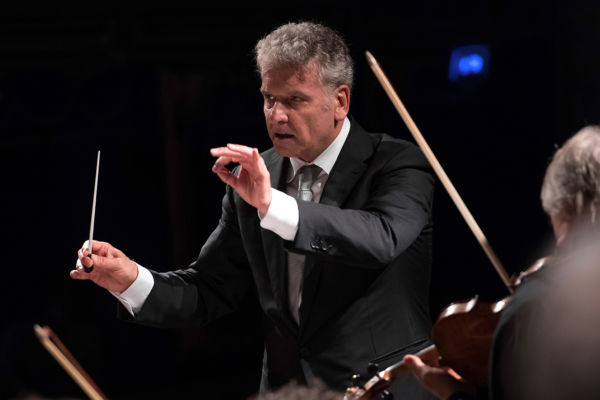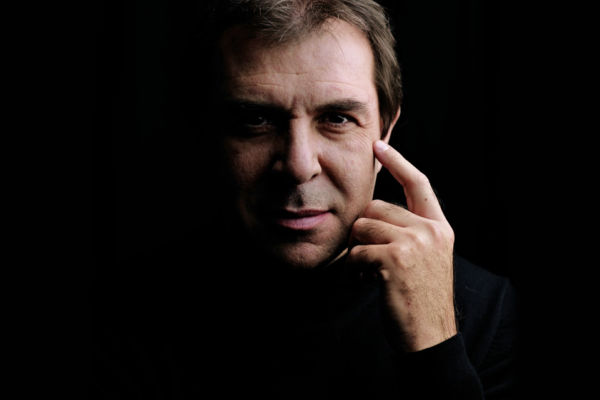
UNESCO TRANSCULTURA
CHIGIANA ADVANCED MUSIC PROGRAM
SUMMER 2024

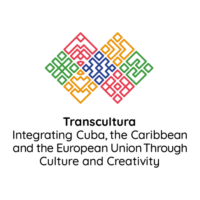
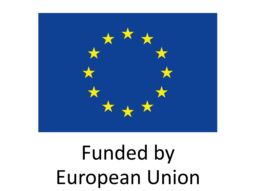

APPLICATIONS ARE NOW CLOSED
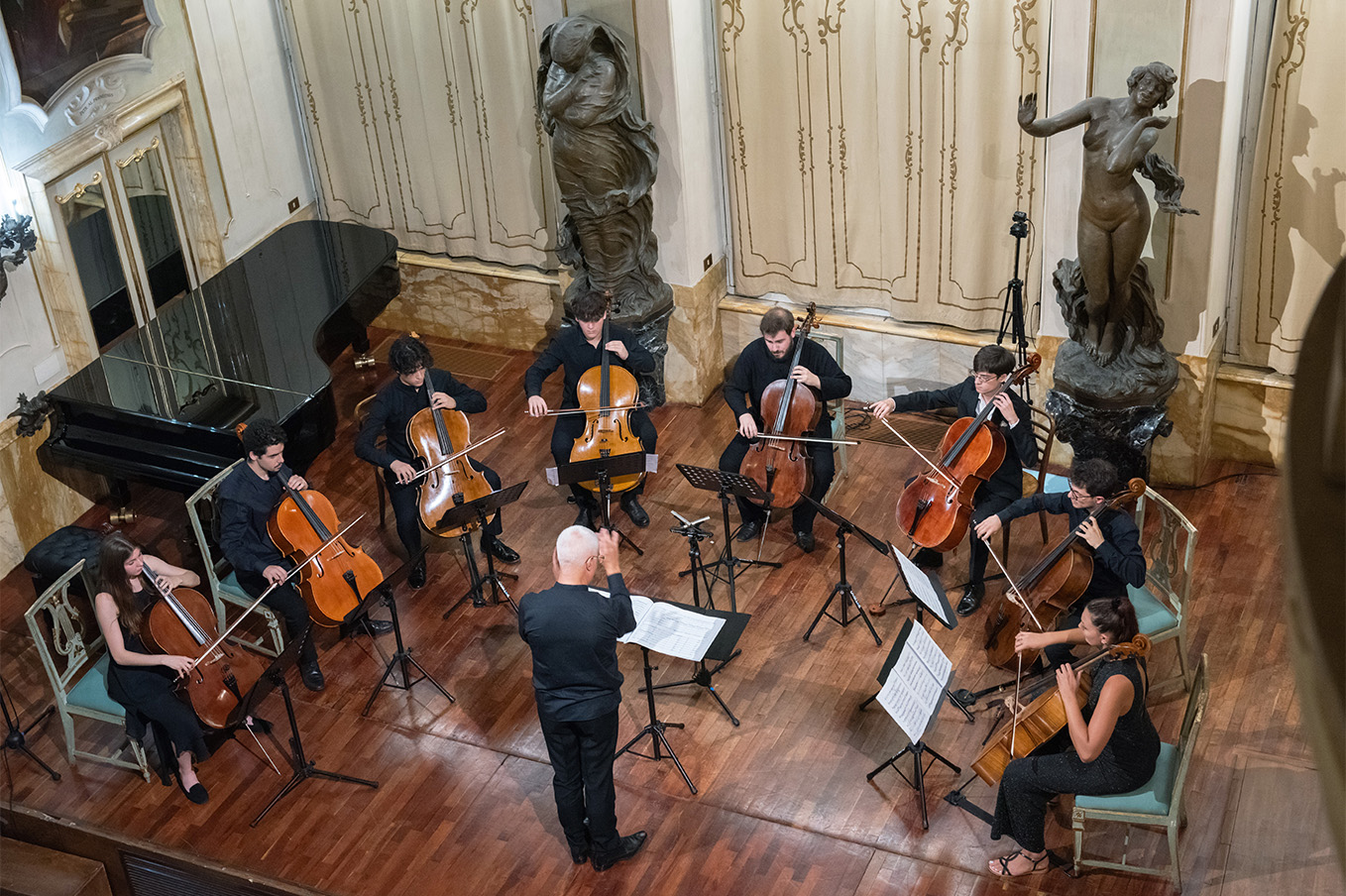
THE PROGRAM
The partnership between the Transcultura program, implemented by UNESCO and funded by the European Union and the Accademia Musicale Chigiana represents an unprecedentedly important initiative aimed at facilitating and supporting the opportunity for young and talented musicians from Cuba and Caribbean countries to access one of the courses available as part of the Chigiana Summer Academy 2024, in Siena, Italy.
Up to 10 full scholarships will be awarded to as many young musical talents, aged between 18 and 35, born and resident in one of the 17 Caribbean countries (listed below), who have successfully passed the admissions exam. This opportunity consists of:
Free online application – no fee to be paid – for the course of your preference (only one); Sponsorship of international mobility to Siena, Italy (coverage of round-trip economy class flights, arrival and departure transfers, visa fees — if necessary —, accommodation in a 3-star hotel — or similar — within the city of Siena, 3 meals per day and daily transport — if necessary —) in the dates of the specific course for which you apply and are selected;
Full access to professional networking and performance activities during your artistic residency.
Founded in Siena, Italy, in 1932 by Count Guido Chigi Saracini, the Accademia Musicale Chigiana is a world-renowned institution for advanced music education. Located in the historic Palazzo Chigi Saracini, the Accademia Chigiana has shaped the musical careers of hundreds of young talents from around the world. Its educational offerings, characterized by collaboration with internationally renowned teachers, are distinguished by their excellence and are designed for young talents who aspire to reach the highest levels of musical training and artistic maturity.
The Summer Academy, established in 1932, is a pivotal moment in the educational offerings of the Accademia Musicale Chigiana. Set in an environment rich in art and history, the program provides young musicians with the opportunity for intensive training and performances under the guidance of internationally renowned faculty. Among the distinguished alumni who have benefited from this experience are names like Daniel Barenboim, Zubin Mehta, Claudio Abbado, Salvatore Accardo, Maurizio Pollini, Esa-Pekka Salonen, Sol Gabetta, and many others.
Young musicians already established internationally have passed through here, partly thanks to the historic International Prize “Accademia Musicale Chigiana.” Winners include: Gidon Kremer, Shlomo Mintz, Anne-Sophie Mutter, Viktoria Mullova, Gil Shaham, Maxim Vengerov, Hilary Hahn, Krystian Zimerman, András Schiff, Evgenij Kissin, Andrea Lucchesini, Lilya Zilberstein, Tabea Zimmerman, the Hagen Quartet, and many others.
The collaboration with Transcultura, the UNESCO program which aims to integrate Cuba, the Caribbean, and the European Union through culture and creativity, opens new perspectives for young artists from the region (17 beneficiary countries: Antigua and Barbuda, Bahamas, Barbados, Belize, Cuba, Dominica, Dominican Republic, Grenada, Guyana, Haiti, Jamaica, Montserrat, Saint Kitts and Nevis, Saint Lucia, Saint Vincent and the Grenadines, Suriname, and Trinidad and Tobago). Transcultura views culture and creativity as transformative and resilient forces, promoting sustainable development through cultural exchanges and cooperation. With its innovative and transversal approach, the program offers training courses in marketing, finance, project management, and partnership creation, preparing young talents for the creation and management of cultural enterprises.
The shared commitment to supporting young individuals in developing their talents and realizing their ambitions in artistic contexts has made the collaboration between Transcultura and the Chigiana Music Academy a natural and characteristic element, serving as a bridge between two worlds to create synergies. This collaboration provides young musicians from the Caribbean with new opportunities for artistic growth and professional development, further enriching the international music scene and promoting sustainable development through culture and creativity.
COURSES AVAILABLE
CELLO
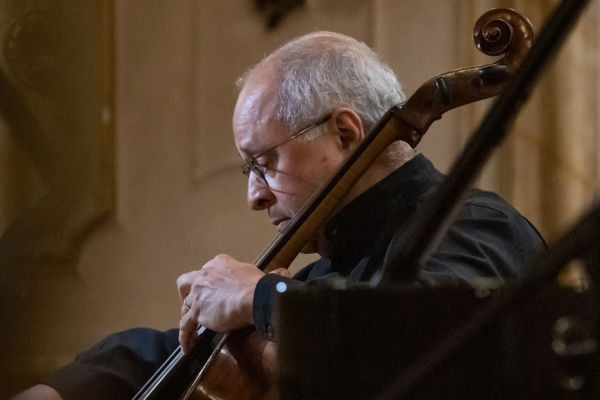
29 JULY / 10 AUGUST
Learn more
AGE LIMIT
30 years
ADMISSION
Mandatory audition
link to a video recording must be included in the online application
GENERAL INFORMATION
This Course is divided into two sections with two different instructors. Both sections may be filled, or the course may be limited to only one section.
During the Course, students may perfect pieces of their own choosing, to be indicated in advance on the Application Form.
To be admitted to each section, candidates must pass the required examination
ENTRANCE EXAMINATION
The admission exam is by pre-recorded video audition. For this test, candidates must submit the required works for the instructor:
Candidates must perform a movement of their own choosing from a Concerto or from a Sonata in the cello repertoire, and a Prelude of their own choosing from the Suites of J.S. Bach played by memory.
Compositions chosen by the student to be perfected during the course must be indicated in advance on the Application Form. At least one piece—in addition to the Bach prelude required for the entrance exam—must be played by memory.
APPLICATION DEADLINE
30 APRIL
CELLO
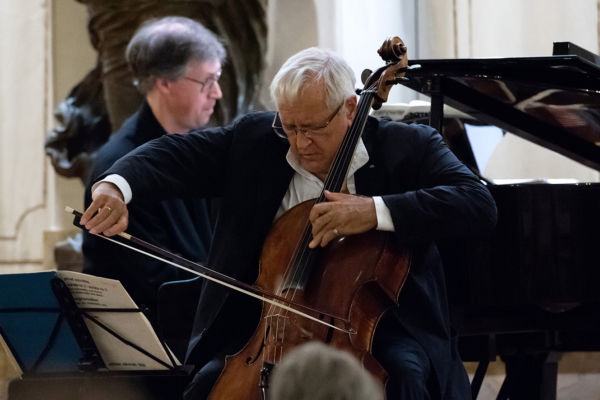
19 AUGUST / 29 AUGUST
Learn more
AGE LIMIT
30 years
ADMISSION
Mandatory audition
link to a video recording must be included in the online application
GENERAL INFORMATION
This Course is divided into two sections with two different instructors. Both sections may be filled, or the course may be limited to only one section.
During the Course, students may perfect pieces of their own choosing, to be indicated in advance on the Application Form.
To be admitted to each section, candidates must pass the required examination.
ENTRANCE EXAMINATION
The admission exam is by pre-recorded video audition. For this test, candidates must submit the required works for the instructor:
Candidates must present two compositions of their own choice from different periods, to be indicated in advance on the Application Form.
APPLICATION DEADLINE
30 APRIL
BAROQUE CELLO
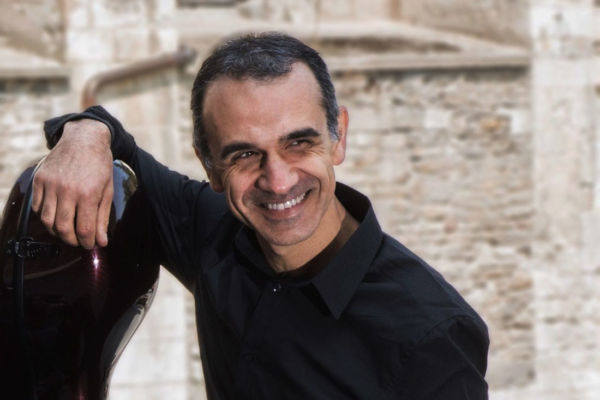
26 AUGUST / 2 SEPTEMBER
Learn more
AGE LIMIT
35 years
ADMISSION
Mandatory audition
link to a video recording must be included in the online application
GENERAL INFORMATION
The course is dedicated to cellists that would like to deepen their knowledge of the performance practice of the baroque and classical period.
Particular attention will be given to the use of bow articulation, a fundamental key for the interpretation of 18th century music.
During the course there will be lessons focused on the execution of Basso Continuo.
Students that have a good knowledge of harmony will have the possibility to study the chord realizations of the recitations found in the vocal music of the 18th century.
ENTRANCE EXAMINATION
The entrance examination is by video audition only. A video recording must be sent along with the application form.
In order to demonstrate a sufficient level of practical execution, candidates must present a video of their playing one or more pieces, to be freely selected from the significant works of the Baroque repertoire.
APPLICATION DEADLINE
30 APRIL
CHORAL CONDUCTING
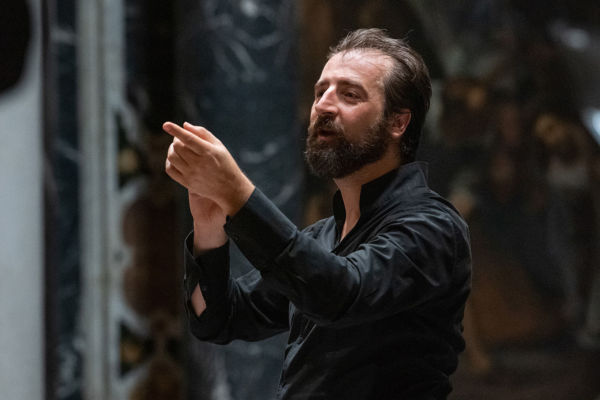
11 JULY / 25 JULY
Learn more
AGE LIMIT
35 years
ADMISSION
Mandatory audition
link to a video recording must be included in the online application
GENERAL INFORMATION
Choir conductors and choir conducting students from public or private academies can participate in the course.
Amor vincit omnia
The victory of love over everything, especially over death, is a theme that art and poetry have passed down for millennia through extraordinary works. From the “Song of Solomon” where it is written, “love is strong as death” [Song of Solomon 8:6-7], to Virgil’s “omnia vincit amor” transformed into the title of Caravaggio’s masterpiece “amor vincit omnia,” the spiritual meaning and emotional energy of these works can also be recognized in the compositions that will be studied during the course. Many pieces will feature text from the extraordinary “Song of Solomon,” and the grand cycles of Palestrina and Daniel-Lusur will be studied, as well as motets by Dunstable, Gabrieli, and Victoria. Magnificent and immortal choral works dedicated to the power of love include the compositions of Monteverdi, Bach, and Mahler, while modern and contemporary pieces are significant for the neo-madrigal repertoire. This program is complemented by a tribute to Dufay on the 450th anniversary of his death and collaboration with the orchestral conducting course led by Maestro Daniele Gatti for the realization of Donizetti’s opera “Don Pasquale”.
The Course will be organized as follows:
-
morning: practical lessons, theory, and exercises with the choir (possible practical lesson with the choir of the opera “Don Pasquale”);
-
afternoon: practical lessons with the choir.
At the end of the afternoon lessons, all students (active and auditors) will attend rehearsals of the following works:
Guillaume Dufay Missa l’Homme armé
György Ligeti Lux aeterna and other pieces for a cappella choir
Goffredo Petrassi Nonsense
Gaetano Donizetti ”Don Pasquale” (directing rehearsal and orchestral rehearsal)
ENTRANCE EXAMINATION
The admission exam will take place through the submission of a video audition. The video, lasting 3-6 minutes, should present a performance or a concert of a piece for a cappella choir.
REPERTOIRE
The lessons will cover the following repertoire:
-
John Dunstable Descendi in hortum meum
-
Guillaume Dufay Missa l’Homme armé
-
Giovanni Pierluigi da Palestrina Canticum canticorum [selection]
-
Giovanni Gabrieli Qui est ista qui venit (double choir a 10 voci)
-
Tomás Luis de Victoria Nigra sum sed formosa, Trahe me post te
-
Claudio Monteverdi Lamento d’Arianna
-
Johann Sebastian Bach Komm, Jesu, komm (mottetto a doppio coro)
-
Gustav Mahler (arr. Clytus Gottwald) Ich bin der Welt (choir a 16 voci)
-
Ildebrando Pizzetti Due composizioni corali
-
Jean-Yves Daniel-Lesur Le Cantique des cantiques (choir a 12 voci)
-
Randall Stroope Amor de mi alma
-
Morten Lauridsen Soneto de la noche
-
Eric Whitacre With a Lily in Your Hand
APPLICATION DEADLINE
30 APRIL
CLARINET
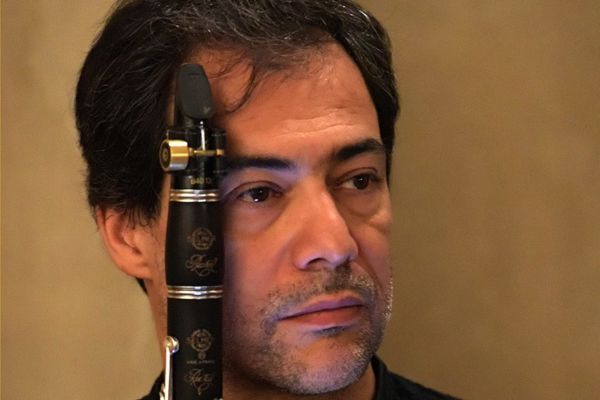
15 JULY / 27 JULY
Learn more
AGE LIMIT
30 years
ADMISSION
Mandatory audition
link to a video recording must be included in the online application
GENERAL INFORMATION
During the course, students will be able to make an in-depth study of additional pieces of their choice. These pieces should be listed in advance on the Application Form.
Candidates that also have a bass clarinet should bring it to Siena with them.
P.S. The lesson times will be established by the teacher on a day to day basis, for this reason it will not be possible to know the lesson calendar in advance.
ENTRANCE EXAMINATION
The entrance examination will be held exclusively by video audition. Candidates must submit the following works:
-
K. M. von Weber, Concerto n. 1 in F minor op. 73 (1st movement)
-
J. Brahms, Sonata in F minor op.120 n. 1 (1st movement)
APPLICATION DEADLINE
30 APRIL
COMPOSITION
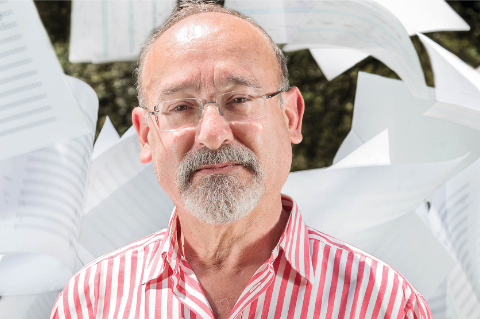
15 JULY / 26 JULY
Learn more
AGE LIMIT
35 years
ADMISSION
Mandatory audition
link to a video recording must be included in the online application
GENERAL INFORMATION
At the beginning of the course, regular students must present an original composition, either solo or for a chamber ensemble, initiated (or the project’s sketches) for a maximum instrumentation of six instruments: string quartet, flute (including alto flute), clarinet (including bass clarinet). As the work progresses, the piece will be rehearsed by the performers in residece: the Quartetto Prometeo (Giulio Rovighi, violin; Aldo Campagnari, violin; Danusha Waskiewicz, viola; Francesco Dillon, cello), flutist Matteo Cesari, and clarinetist Paolo Ravaglia. If possible, the composition will be performed in the final concert by the students.
The performers in residence, with their presence, will contribute to lessons and analyses aimed at the necessary understanding of both classical and modern repertoire.
ADMISSION REQUIREMENTS
The candidate must present the following materials with the online application form:
1. The scores of one or two of their recent compositions
2. A transcription for string quartet of the Mazurka op. 41 n. 2 by Fryderyk Chopin. The parts to be transcribed, from an original work for four-hands piano, will be sent on request to candidates by email.
Scores for these pieces must be received by the student Secretary’s Office of the Accademia Chigiana, together with the application form by April 30th.
The Accademia Chigiana will communicate to all candidates the result of the selection made by the examining commission.
APPLICATION DEADLINE
30 APRIL
COMPOSITION
FOR ANTIQUE INSTRUMENTS
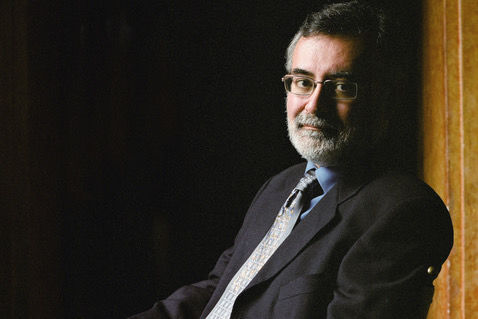
26 AUGUST / 2 SEPTEMBER
Learn more
AGE LIMIT
35 years
ADMISSION
Mandatory audition
link to a video recording must be included in the online application
GENERAL INFORMATION
The course intends to offer young composers the opportunity to work on their own composition by coming into contact with the poetic and aesthetic world of antique instruments and their sound.
The students and teachers of the Chigiana-Mozarteum Baroque Program will collaborate during daily and in-depth work together, with the possibility of exploring the most interesting aspects of antique instruments.
This collaboration between students and teachers is the basis of the work and is a fundamental feature of the course.
Lessons in analysis will complete the course program.
ENTRANCE EXAMINATION
The candidate must submit, together with the application form, the scores of two recent compositions, one for solo instrument and one for a chamber ensemble from 3 to 6 instruments. Please send an mp3 audio file of the compositions.
These scores must be received by the Accademia Chigiana, together with the application form by 30 April. The Academy will inform all candidates of the outcome of the selection made by the examining commission.
The course will benefit from the collaboration of a consort of 4 viole da gamba, resident instrumentalists who will be present throughout the course. Students can use this instrumental ensemble as a basis for their own work.
Well in advance of the period of the course, the active students will start working on the first drafts of their pieces together with the composition instructor, as well as by the other instrumental teachers who will all give useful indications and suggestions regarding their instrument.
The aim is to ensure that the active students arrive to the course with the draft of a composition that is already well on its way. Therefore, during the course, it will be possible to make further advancements in the work, to deepen and develop other aspects in direct collaboration with the resident instrumentalists of the laboratory from the Mozarteum University Salzburg.
If possible, the composition will be performed by the resident instrumentalists at the final concert of the course, scheduled for Monday 2 September (in concert hall of Palazzo Chigi Saracini).
APPLICATION DEADLINE
30 APRIL
DOUBLE BASS
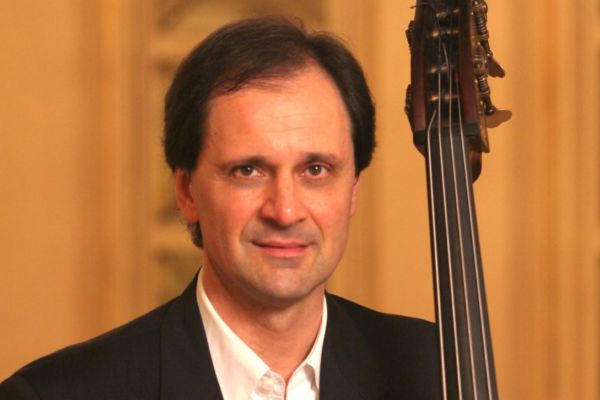
GIUSEPPE ETTORRE
26 JULY / 8 AUGUST
Learn more
AGE LIMIT
33 years
ADMISSION
Mandatory audition
link to a video recording must be included in the online application
GENERAL INFORMATION
During the Course, students will be able to make an in-depth study of additional pieces of their choice. These pieces should be listed in advance on the Application Form. Active students must provide the collaborating pianist with scores of the pieces being studied in the appropriate key.
Throughout the Course itself, solo tuning is preferred.
For study purposes during the Course, several modern concert double basses will be made available. These instruments may be used exclusively on Accademia Chigiana premises during open hours and in accordance with turns to be established within Double Bass class.
Modern concert double basses may be rented – pending verification of availability – from the lab of makers Simone and Damiano Verdiani in Colle Val d’Elsa (tel. +39 0577 927099 / info@contrabbassiverdiani.it).
ENTRANCE EXAMINATION
The entrance examination will be held exclusively by video audition. Candidates must submit the following repertoire:
-
one movement to be chosen between: Prelude and Allemande from Suite n.1 BWV 1007 by J.S. Bach, or the “Suite im alten Stil” by Hans Fryba for double bass solo;
-
the first movement of a concerto or sonata from the Classical Period without cadenza;
-
the first movement of a concerto, sonata, or concert piece with piano accompaniment from the Romantic Period or later.
Note: The video recording for the entrance examination may be made using either orchestral or solo tuning.
APPLICATION DEADLINE
30 APRIL
GUITAR
AND NEW MUSIC FOR GUITAR
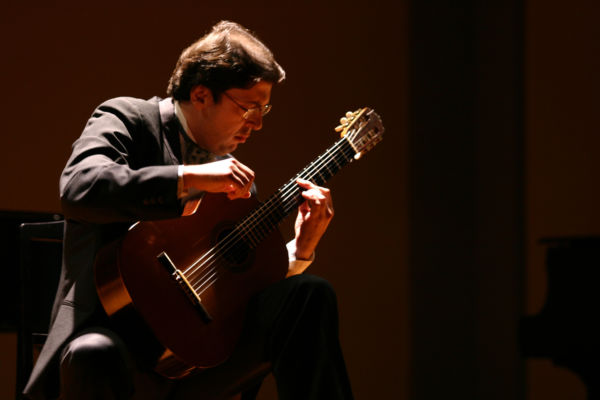
19 AUGUST / 29 AUGUST
Learn more
AGE LIMIT
30 years
ADMISSION
Mandatory audition
link to a video recording must be included in the online application
GENERAL INFORMATION
The Course is open to guitar soloists.
ENTRANCE EXAMINATION
The entrance examination must be submitted via online video audition only. Candidates must present a program of approximately twenty minutes in length, to be indicated in advance on the application form. This program shall include important works from the solo repertoire, with an obligation to an original piece for guitar composed after 1960.
From the program presented, select pieces will be chosen for the audition at the discretion of the commission.
APPLICATION DEADLINE
30 APRIL
FIVE CENTURIES
OF GUITAR
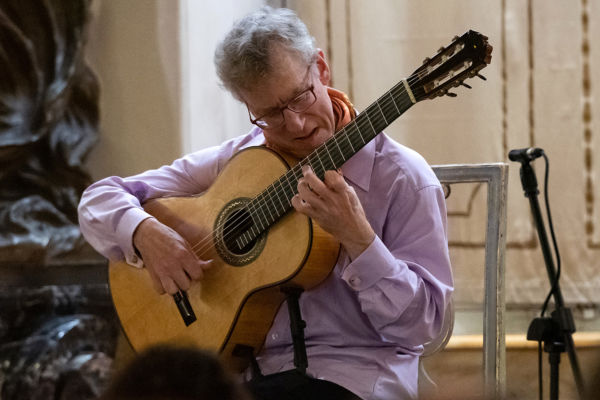
5 AUGUST / 14 AUGUST
Learn more
AGE LIMIT
30 years
ADMISSION
Mandatory audition
link to a video recording must be included in the online application
GENERAL INFORMATION
The course is open to solo instrumentalists and will focus on a repertoire that spans five centuries of music, with attention devoted to the desires and interests of the student.
During the course, students will be able to undertake an in-depth study of pieces of their choice from the guitar repertoire. These pieces should be listed on the Application Form.
ENTRANCE EXAMINATION
The entrance examination will be held exclusively by video audition. Candidates must submit two pieces of their own choosing from different periods and in contrasting styles.
APPLICATION DEADLINE
30 APRIL
HARPSICHORD
BASSO CONTINUO AND FORTEPIANO
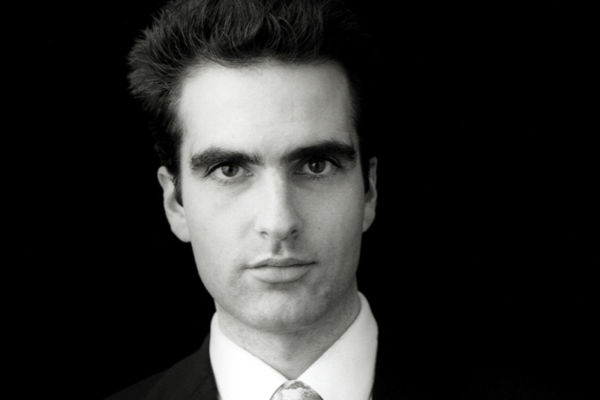
26 AUGUST / 2 SEPTEMBER
Learn more
AGE LIMIT
35 years
ADMISSION
Mandatory audition
link to a video recording must be included in the online application
GENERAL INFORMATION
Harpsichord solo repertoire from early baroque to galant style.
Fortepiano (5octav instrument) till around 1800, solo chamber music.
Basso continuo and Ensemble.
ENTRANCE EXAMINATION
The entrance examination is by video audition only. A video recording must be sent along with the application form.
In order to demonstrate a sufficient level of practical execution, candidates must present a video of their playing one or more pieces, to be freely selected from the significant works of the Baroque repertoire.
APPLICATION DEADLINE
30 APRIL
FLUTE
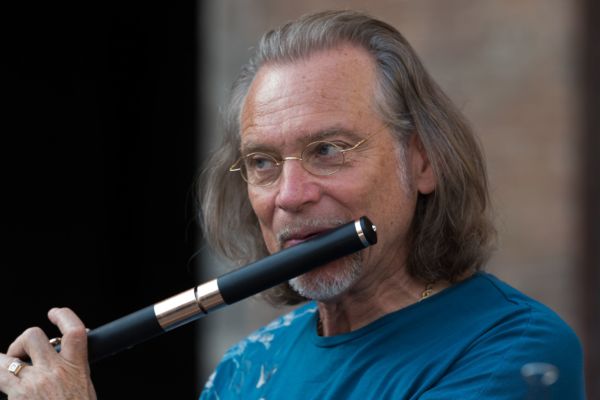
29 JULY / 10 AUGUST
Learn more
AGE LIMIT
30 years
ADMISSION
Mandatory audition
link to a video recording must be included in the online application
GENERAL INFORMATION
During the Course candidates will perfect pieces of their own choosing from the flute repertoire from Bach to Boulez. Pieces must be indicated in advance on the Application Form and must be played by memory.
ENTRANCE EXAMINATION
The entrance examination will be held exclusively by video audition. Candidates must perform by memory one movement of a concerto of their own choosing (at least 10 minutes long) to be indicated on the application form.
REPERTOIRE
In view of lessons on Mozart, Bach, and Telemann, the preparation of the following music literature (in the language preferred) is strongly recommended:
Leopold Mozart, Versuch einer gründlichen Violinschule (Essay on a fundamental method for violin);
C.P.E. Bach, Versuch über die wahre Art das Clavier zu spielen (Essay on the art of playing keyboard instruments);
Joachim Quantz, Versuch einer Anweisung, die Flöte traversiere zu spielen (Essay on playing the transverse flute).
APPLICATION DEADLINE
30 APRIL
RECORDER
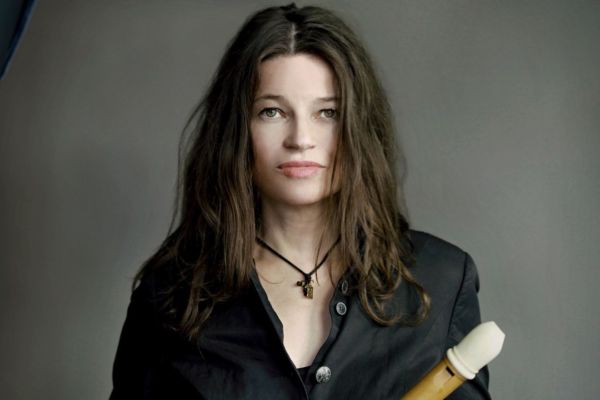
26 AUGUST / 29 AUGUST
Learn more
AGE LIMIT
35 years
ADMISSION
Mandatory audition
link to a video recording must be included in the online application
GENERAL INFORMATION
This masterclass focuses on recorder music of the 17th and 18th centuries (solo and chamber music) and its typical forms within European national styles, such as the sonata, concerto, suite, fantasy or variation form, but also with the art of diminution. In addition to aspects of performance practice such as ornamentation, tempo, articulation or dance movement characteristics, intensive work will be carried out on the central aspects of recorder technique, and on the role of body perception. Each day of lessons includes a group session on technique.
ENTRANCE EXAMINATION
The entrance examination is by video audition only. A video recording must be sent along with the application form.
In order to demonstrate a sufficient level of practical execution, candidates must present a video of their playing one or more pieces, to be freely selected from the significant works of the Baroque repertoire.
APPLICATION DEADLINE
30 APRIL
TABULA RASA
THE ART OF IMPROVISATION
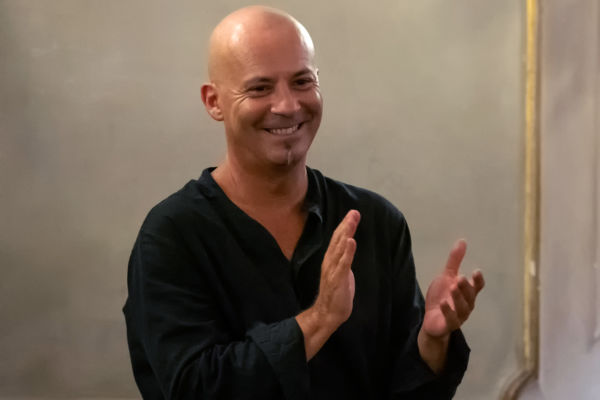
20 AUGUST / 27 AUGUST
Learn more
AGE LIMIT
35 year
INTRODUCTORY INTERVIEW
19 AUGUST / 6pm
COURSE BEGINS
20 AUGUST / 10am
GENERAL INFORMATION
The course is open to all instrumentalists and singers.
SOLO PIANO – piano class (max 6 students / individual lessons of 45 minutes per day)
ENSEMBLE – open to all instrumentalists and singers (collective lessons of 5 hours per day)
The entrance examination will be held exclusively by video audition. Candidates must submit at least two videos in which they perform two free-choice pieces of contrasting character to demonstrate their instrumental or vocal skills.
An introductory interview with the instructor is scheduled for 17 August (at 6:00 PM).
During the registration process, students must submit a curriculum detailing their studies.
COURSE DETAILS
Lessons will be in the form of workshops dedicated to research based specifically on approaches to improvisation, both traditional and those influenced by fusion and new music.
The methodological syntax will be based on direct musical experience, linked to instrumental action, different compositional techniques, and a wide range of creative and expressive forms. It aims to be an alternative complementarity to normal study courses based on representation, assimilation, and repetition of models and styles.
It adopts a performance method, which is committed to accompanying all musicians who have decided to make music their profession and art through their most difficult and decisive period. These musicians need an autonomous environment free of pressures from the circuit where they can experiment through continuous practice and research experiences, both individually and with groups, to reach a more complex yet more joyful, articulated and informed musical maturity.
LESSONS & WORKSHOPS
The lessons will explore the following:
-
learning how to listen to and recognise musical material: the four parameters;
-
learning how to build and manage the creative process without established models;
-
examining the relationship between mindful listening and reaction;
-
defining different levels of autoresonance and musical perception;
-
developing a complementary instinct among musicians in their instrumental action;
-
building musical balances within a group more quickly;
-
acquiring the ability to recognise, develop and create a dialogue between thematic forms, accompanying narrative subjects and developing them semantically within morphological structures: the three narrative parameters.
Once the learning phase has been completed, there comes the moment to create an identity for oneself by dealing with the musical experience experimentally. This task requires delving deeply and is often put off indefinitely by musicians; it explores compositional awareness and develops technical/instrumental expertise to the same degree. The purpose is to negotiate the most dynamic future possibilities for the world of music through on-the-spot composition, experimenting with different ways of conceiving an improvisation performance.
APPLICATION DEADLINE
30 APRIL
LIVE ELECTRONICS
SOUND AND MUSIC COMPUTING
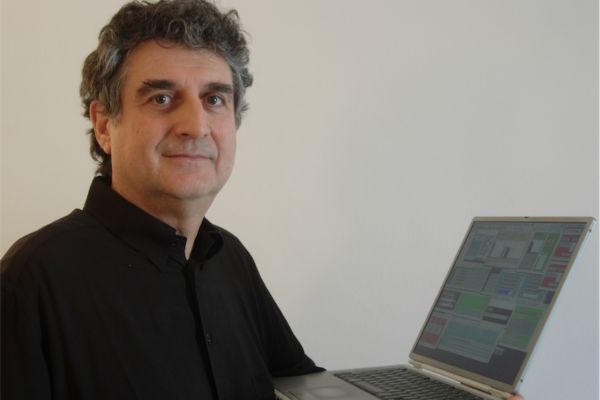
ALVISE VIDOLIN
15 JULY / 27 JULY
Learn more
AGE LIMIT
35 years
ADMISSION
Requested materials to be included in the online application
GENERAL INFORMATION
The course is aimed at composers, performers, and interpreters of electronic music, as well as sound engineers who wish to delve into theoretical, technical, and creative aspects related to the production of live electronic concerts. The online lessons are preparatory for the in-person course and will take place from 10:00 AM to 1:00 PM / 3:00 PM to 6:00 PM on the following days: May 10th, 17th, 24th, and 31st, as well as June 14th and 21st.
1. COMPOSITION TRACK
For the admission exam, candidates must submit the scores of two recent compositions with electronic music parts, attaching any audio files and recordings of a performance (to be uploaded on YouTube in “unlisted” mode).
The scores must reach the Secretariat of the Accademia Chigiana at the same time as the online application form by 30 April.
The Chigiana Academy will communicate the results of the selection made by the examining committee to all candidates.
The course will have an analytical/theoretical nature in online lessons and laboratory sessions with daily meetings in face-to-face lessons.
Students are required to submit, by the date of the first online meeting, a score (or sketches) of an original composition for voice and/or solo instrument with live electronics. The electronic part will be created during the lessons and performed in concert (July 27) by a student from the courses of the Chigiana Academy.
2. PERFORMANCE TRACK
For the entrance exam, candidates must present the technical-performance plans for two pieces from the repertoire for voice or instrument or ensemble and live electronics by a well-known author, to be chosen by each candidate. These must be sent with the application form by April 30.
The technical-performance plans must be finalized for performance in a hall of roughly 250 seats and approximate dimensions of m. 50 x 10 x 5(h), with live electronics preferably to be performed by a single person.
To perform the work, the candidate may make use, as necessary, of components from the following audio system:
• 9 independent amplification channels with 9 full-range loudspeakers positioned on the boom at variable height and orientation;
• 1 subwoofer speaker positioned on the ground with independent amplification channel;
• wide variety of dynamic condenser, proximity, radio, microphones with rods and various supports;
• 1 analog or digital mixer of the candidate’s choice;
• 1 reverb generator of the candidate’s choice;
• 1 personal computer with multichannel audio interface and MIDI controller of the candidate’s choice, software chosen by the candidate (preferred: Max / MSP, PD, Supercollider, Csound, or Faust, which may also be interconnected with each other)
• power supply, audio and power cables, technician for installation support.
The plan must include:
• data sheet;
• diagram of the connections between the various devices and their location in the Hall and/or in neighboring environments;
• detailed configuration of the mixer (inputs/outputs, internal programming);
• performance environment created by the computer using the chosen software;
• text describing the actions that the performer must perform during the performance, possibly accompanied by additional instructions inserted in the score.
COURSE DETAILS
Lessons on theory will deepen the student’s knowledge of the following topics:
– the temporal eco-sustainability of musical works with electronic parts
– the choice of technological equipment suitable for sustainability
– the adaptation of past works made with technologies that are no longer available
– the various semiographic notations useful for the reading, interpretation and reconstruction of electronic parts
– the use of scripting and automation systems for the systematic creation of highly complex electronic scores
These topics present challenging aspects that are still open to emerging research and will be addressed by highlighting the research and investigating the know-how and components necessary for in-depth realizations of past and future works.
LESSONS AND WORKSHOPS
IN-PERSON COURSE
The practical lessons provide for the active participation of students in the performance of the electronic parts of the compositions listed below that will be performed within the concerts of the Chigiana International Festival & Summer Academy 2024:
Dashow Soundings in pure duration n. 10 / Ipiece per Arturo Tallini
Momi Vuoi che nel fuori for percussion trio and electronics
Nono Omaggio a György Kurtàg / Post Praeludium n. 1 per Donau / Interludio Primo dal “Prometeo”
Ligeti Artikulation
Romitelli Natura morta con fiamme (1991)
Ligeti Glissandi
Manoury Pluton (1988)
Letort Nautipoulpe
ONLINE PREPARATORY LESSONS
In the on-line preparatory lessons, the works with electronic parts to be performed in the aforementioned concerts will be analyzed and the executive environments planned. In the on-site laboratories, in addition to the execution of the electronic parts, the problems of recording, processing and spatialization of live sounds will be addressed, also as a function of documentation work to be carried out in post production. Through the preparation, rehearsal and performance of the pieces with electronics listed above, different playing techniques will be studied, using the SaMPL electroacoustic system based on d & b audiotechnik amplification, Yamaha DM1000 digital mixer and multi-channel spatialization in 8-channels.
APPLICATION DEADLINE
30 APRIL
INNOVATION IN
CHAMBER MUSIC
![Krakauer-Jazz_1[1] Krakauer-Jazz_1[1]](https://www.chigiana.org/wp-content/uploads/Krakauer-Jazz_11-600x400.jpg)
5 AUGUST / 10 AUGUST
Learn more
AGE LIMIT
individuals: 35 years
ADMISSION
Mandatory audition
link to a video recording must be included in the online application
GENERAL INFORMATION
David Krakauer’s course is a unique opportunity to explore new paths of artistic expression.
The course is open to individual instrumentalists.
COURSE DETAILS
This course, taught by internationally renowned Grammy nominated classical/world music artist David Krakauer, is designed to help musicians (all genres welcome) broaden their horizons both through developing their ensemble performance skills and expanding their concepts of multi-faceted programming. The ultimate goal of the course is to help participants find their own unique voice both as soloists and ensemble players.
This course is open to advanced level classical, jazz and world musicians. Both soloists and pre-formed ensembles are encouraged to apply.
Krakauer brings his forty years of experience as a chamber musician, ensemble leader and clarinet soloist to the table in teaching this course. As a pioneer in creating multi-genre collaborative work since the early 1990s his list of internationally renowned collaborators is a who’s-who of performers, conductors and ensembles that run the gamut of stylistic affiliations including the Kronos Quartet, Marin Alsop, the Emerson Quartet, Osvaldo Golijov, Fred Wesley, Leonard Slatkin, the Klezmatics and the Tokyo Quartet to name a few.
David Krakauer will be joined in teaching this course by his longtime collaborator Kathleen Tagg. In addition to co-composing a clarinet concerto, a film score and other large scale works; Krakauer & Tagg have created a highly personal and genre-crossing body of work that incorporates multi-media, electronics and improvisation. They have appeared together on some of the world’s great stages including the Pierre Boulez Saal in Berlin, the Ars Musica Festival in Brussels, Carnegie Hall in New York City and the Théâtre du Châtelet in Paris.
ENTRANCE EXAMINATION
The entrance examination will be held exclusively by video audition. Candidates must submit two contrasting works of their own selection that demonstrate musicality, technical proficiency, and the applicant’s specific repertoire/artistic orientation. Pieces may include classical repertoire, new compositions, or intersections of classical/world/jazz music.
Candidates must also provide a curriculum of their studies and indicate during the application phase what their artistic objectives are and what they would like to work on during the Course.
APPLICATION DEADLINE
30 APRIL
OBOE
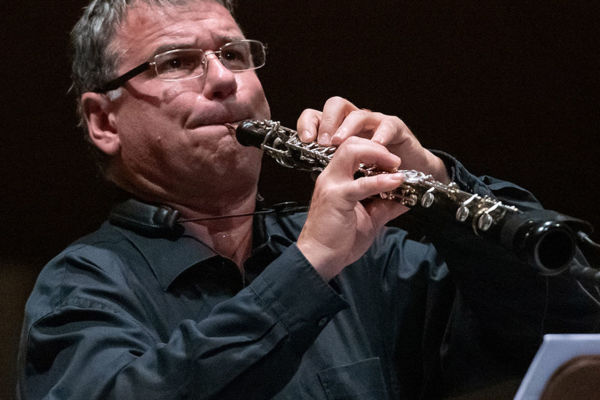
31 JULY / 9 AUGUST
Learn more
AGE LIMIT
30 years
ADMISSION
Mandatory audition
link to a video recording must be included in the online application
GENERAL INFORMATION
The course repertoire will extend from Couperin to Berio, and students will be able to undertake an in-depth study of works of their choice. These pieces should be listed in advance on the Application Form.
ENTRANCE EXAMINATION
The entrance examination will be held by video audition. Candidates must perform the following works:
- the first movement of a Classical concerto of the candidate’s choice;
- one of G. P. Telemann’s Fantasias;
- the solo from the second movement of the J. Brahms Violin Concerto, op. 77.
REPERTOIRE
In addition to individual lessons, there will also be daily group sessions dedicated to the analysis and interpretation of the following great works from the repertoire:
J.S. Bach, Sonata in g min. BWV 1030 – W.A. Mozart, Concerto in C Maj., K.314 – R. Schumann, Romanze, op. 94 – R. Strauss, Concerto in D Maj. – L. Berio, Sequenza VII.
APPLICATION DEADLINE
30 APRIL
BAROQUE OBOE
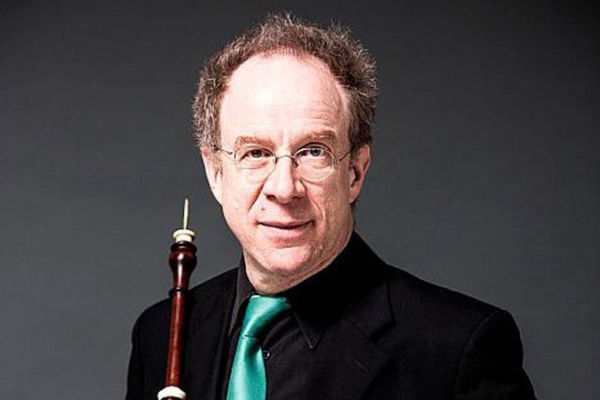
26 AUGUST / 2 SEPTEMBER
Learn more
AGE LIMIT
35 years
ADMISSION
Mandatory audition
link to the video recording to be included in the online application
GENERAL INFORMATION
Repertoire and technique of the oboes of the 18th Century – baroque, d’amore, da caccia, classical. Reed making. Solo, chamber and orchestral music by Bach, Vivaldi, Telemann, Händel, Hotteterre, Philidor, Couperin and others.
ENTRANCE EXAMINATION
The entrance examination is by video audition only. A video recording must be sent along with the application form.
In order to demonstrate a sufficient level of practical execution, candidates must present a video of their playing one or more pieces, to be freely selected from the significant works of the Baroque repertoire.
APPLICATION DEADLINE
30 APRIL
ORCHESTRAL CONDUCTING
Opera Workshop
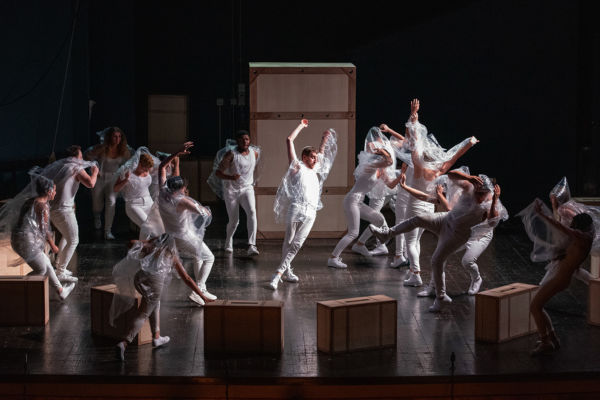
DON PASQUALE
by G. DONIZETTI
10 JULY / 22 JULY
Learn more
AGE LIMIT
35 years
ADMISSION
A video recording must be included in the online application
COURSE DESCRIPTION AND ADMISSIONS
The course is divided into three phases:
1st Level Ordinary Course: July 4 – 8 (Instructor: Luciano Acocella)
Opera Workshop on “Don Pasquale” by G. Donizetti: July 10 – 22 (Instructor: Daniele Gatti / Co-instructor: Luciano Acocella)
2nd Level Master Course: July 23 – 28 (Instructor: Daniele Gatti / Co-instructor: Luciano Acocella)
At the end of the three periods, the following performances are scheduled as part of the Chigiana International Festival 2024:
July 8, 9:00 PM, Teatro dei Rozzi, Siena: Final concert of the Ordinary Course.
July 20 and 22, 8:30 PM, Teatro dei Rinnovati, Siena: Staging of “Don Pasquale” by G. Donizetti, with the singers of the Accademia del Maggio Musicale Fiorentino, directed by Lorenzo Mariani, set and costumes by William Orlandi and Francesco Bonati, lights by Marco Filibeck, Cathedral of Siena Choir “Guido Chigi Saracini,” choir master Lorenzo Donati, Senzaspine Orchestra of Bologna.
July 28, 9:00 PM, Teatro dei Rinnovati, Siena: Final concert of the Master Course.
For admission to the course, candidates must pass two tests:
1) Evaluation of qualifications and video documentation (results will be communicated after May 15);
2) Practical test with an orchestra.
ADMISSION
Evaluation of qualifications and video documentation
For this initial selection, candidates must submit to the Chigiana Academy by May 15, academic and artistic qualifications demonstrating the level of studies and ongoing conducting activities, a video (YouTube, Vimeo) of good quality made in the last three years, lasting no less than 20 minutes with complete pieces (not fragments), indicating the date and place of recording and a photograph of the candidate. The information must be summarized in the synthesis form to be attached to the registration form.
The Academy’s office will communicate the results of this first test to all candidates.
Practical test with the orchestra
The live practical test, with the Senzaspine Orchestra, will take place on July 4 at 2:00 PM at the Teatro dei Rozzi in Siena.
To be admitted to the test, the registration fee of €68 must already be paid. For the live practical test, candidates must present the following repertoire:
Beethoven Egmont Overture op. 84
Brahms Serenade in D major op. 11
There will be a single selection for attendance throughout the course (Ordinary Course, Master Course, Opera Workshop).
REPERTOIRE – 1st Level Ordinary Course
The study program during the Ordinary Course is as follows:
Beethoven Egmont Overture op. 84
Beethoven Coriolan Overture op. 62
Brahms Serenade in D major op. 11
The study program during the Opera Workshop is as follows:
Donizetti “Don Pasquale”
REPERTOIRE – 2nd Level Master Course
The study program during the Master Course is as follows:
Beethoven Symphony No. 2 in D major op. 36
Ravel Ma Mère l’Oye
Stravinsky Concerto in E-flat major “Dumbarton Oaks”
Ligeti Ramifications
The best students of the course, selected by the instructors, will be recommended to the partner institutions of the Chigiana Academy for the Orchestra Conducting course: ORT – Orchestra della Toscana, OPV – Orchestra di Padova e del Veneto, Orchestra Filarmonica A. Toscanini, Parma, Fondazione Orchestra Sinfonica di Sanremo, Orchestra Sinfonica 131 della Basilicata, Istituzione Sinfonica Abruzzese for possible inclusion in their programming.
APPLICATION DEADLINE
30 APRIL
PERCUSSION
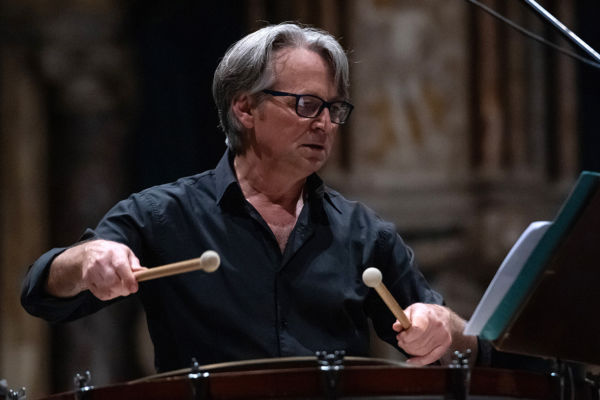
ANTONIO CAGGIANO
8 JULY / 26 JULY
Learn more
AGE LIMIT
30 years
ADMISSION
Mandatory audition
link to a video recording must be included in the online application
GENERAL INFORMATION
The Course is open to percussion soloists and ensembles (not to exceed a quartet).
The chosen pieces must be indicated in advance on the Application Form.
The Accademia Chigiana will make available the following percussion instruments for use during the entrance examination and during the course lessons:
• 1 marimba 5 octaves
• 1 marimba 4 octaves 1/3
• 1 vibraphone
• 1 glockenspiel
• 4 timpani
• 2 pairs of bongos
• 4 tam tam
• 4 hanging cymbals
• 1 djambee
• 1 Sabar
• 1 tenor drum
• 1 snare drum
• 1 pair of timbales
• 2 symphonic bass drums
• 5 wood blocks
• 6 tom toms
• 2 congas
• 2 tambourines
• 2 triangles
ENTRANCE EXAMINATION
Candidates must submit the following material for the entrance examination:
Percussion soloists: a programme of their own choosing, about 20 minutes long, including important 20th-century works for solo percussion.
REPERTOIRE
The course includes daily lessons divided into two parts, one dedicated to the instrumental techniques of literature for percussion instruments of the twentieth century, and the other to the preparation of the following pieces:
The program includes:
György Ligeti, Síppal, Dobbal, nádihegedűvet (2000) for mezzo-soprano and 4 percussionists
Sylvano Bussotti, Regina for 5 percussionists, Coeur pour batteur for 1 percussionist, L’uccellatore e il paggio, Passo d’uomo for oboe, timpani, and percussion
Daniele Lombardi, Miroir 1, Crepuscolo a Foce Verde for flute, percussion, and magnetic tape
John Cage, Third Construction for 4 percussionists, Child of Tree for 1 performer, Inlets
Morton Feldman, The king of Denmark for 1 percussionist
Christian Wolff, 70 (and more) for Alvin
Alvin Lucier, Silver streetcar for the Orchestra for amplified solo triangle
Marco Momi, Vuoi che nel fuori for percussion trio and electronics
Bruno Letort, Nautipoulpe for 1 solo percussionist, 3 water percussion instruments, electronics, and video
These works will be performed in concert within the Chigiana International Festival 2024.
APPLICATION DEADLINE
30 APRIL
PIANO
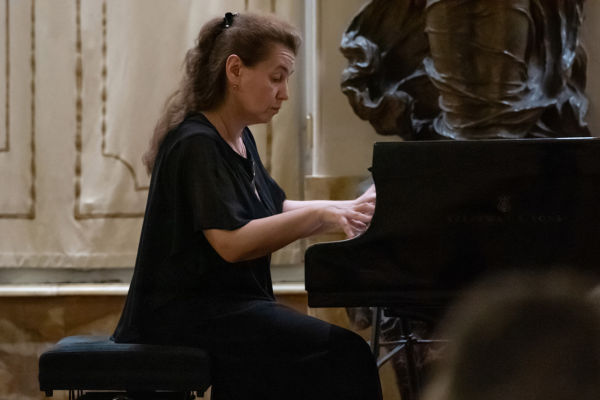
LILYA ZILBERSTEIN
26 JULY / 12 AUGUST
Learn more
AGE LIMIT
solo pianists: 30 years
ADMISSION
Mandatory audition
link to a video recording must be included in the online application
GENERAL INFORMATION
The course is open to piano soloists.
After passing the entrance examination, students may perfect pieces of their own choice, by indicating their choices in advance on the application form. We recommend that students include in their study programme at least one piece that is from 5 to 7 minutes in length that can be performed as part of the final concert at the end of the course and/or in other concerts.
Pieces chosen for the entrance exam, as well as, those indicated for study during the course must be performed from memory.
ENTRANCE EXAMINATION
For the admission exam, candidates must perform the following:
a program of your choice lasting about twenty minutes including significant works from the piano repertoire from the nineteenth century onwards.
Pieces chosen for the entrance exam must be indicated on the application form and be performed from memory.
APPLICATION DEADLINE
30 APRIL
SINGING
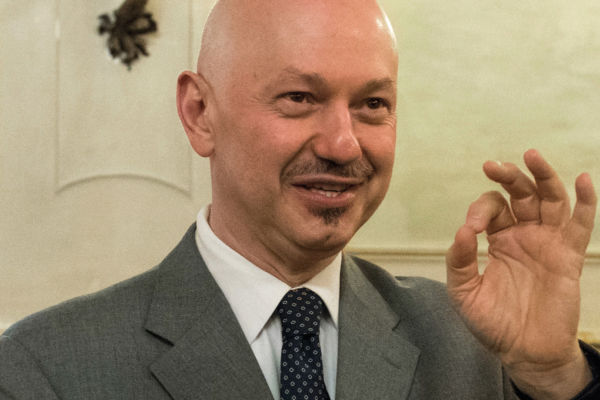
22 JULY / 10 AUGUST
Learn more
with the
Opera Workshop
The Turn of the Screw
by B. Britten
AGE LIMIT
sopranos and tenors: 32 years
mezzo sopranos, contraltos, baritones and basses: 34 years
ADMISSION
Mandatory audition
link to the video recording to be included in the online application
GENERAL INFORMATION
The course is dedicated to the study of bel canto, aiming to solidify its technical and expressive foundations, and it includes a repertoire that, while remaining within the classical realm, can range from recitative singing to contemporary pieces.
The program for the 2024 course includes:
-
The preparation and staging of the opera “The Turn of the Screw” by Benjamin Britten, libretto by Myfanwy Piper, in the production of the Mozarteum University of Salzburg, directed by Florentine Klepper, set and costumes by Selina Schweiger, conducted by Kai Röhrig with the Mozarteum University Chamber Orchestra. Two performances of the opera are scheduled with two different casts on August 9 and 10 at the Teatro dei Rozzi in Siena.
-
In-depth study of solo pieces, as well as arias, duets, and ensemble pieces, in preparation for the students’ concert (August 3) and other potential public performances.
The number of participants in the 2024 course will be limited to 12 effective students.
To be admitted to the course, candidates must pass the required audition (video audition) and pay the corresponding tuition fee.
During the course, students can further refine additional chosen pieces, indicating them in advance on the registration form.
Two outstanding students from the course may be recommended to the Teatro Comunale di Bologna for possible involvement in the activities of the Fondazione Lirica, subject to compatibility between the theater’s programming and their characteristics and availability.
It is also possible to attend the course as auditor students.
ENTRANCE EXAMINATION
The selection of participants for the course will be exclusively based on the video audition.
The chosen pieces for the admission audition must be indicated during the registration phase.
Program for the video audition:
For The Turn of the Screw the following is required:
The Prologue (tenor)
Prologue act I “It is a curious story” – from page 1 to page 5 (first bar “I will,” she said)
Quint (tenor)
Scene VIII (At Night) – from page 82 “Miles!…” to page 88 (second system, excluding no. 79)
The role of The Prologue and Quint must be performed by the same singer.
The Governess (soprano)
Scene IV (The Tower) – from page 34 “How beautiful it is” to page 40 “Who can it be? Who?”
Scene VII (The Lake) – from page 77 no. 65 “Flora! Come along!” to page 79 “lost!”
Miles (boy’s voice, or soprano II, or sopranist)
Scene V (The Window) – from page 42 “Tom, Tom, the Piper’s son…” to the end of page 46 “la… la la la la la…”
Scene VI (The Lesson) – from page 63 “Many nouns in IS…” to page 65 “to the Masculine are assigned”; then continuing from page 67 “Malo, Malo etc…” to the end of page 68
The soprano or sopranist voice will also be evaluated based on physicality compatible with the role. This applies to the role of Flora as well.
Flora (boy’s voice or soprano)
Scene V (The Window) – from page 42 “Tom, Tom, the Piper’s son…” to the end of page 46 “la… la la la la la…”
Scene VII (The Lake) – from page 71 “o Rivers and Seas and Lakes” to the end of page 76 “go to sleep”
Mrs. Grose (soprano, mezzo-soprano)
Scene V (The Window) – from page 50 (no. 39) “Dear God” to page 56 “…to his dreadful ways?” (excluding no. 44)
Miss Jessel (soprano)
Scene VIII (At Night) – from page 88 (no. 79) “Flora!” to page 97 “I… shall be there!…”
Reference Edition: Hawkes & Son (London), 1955
In relation to the staging of the opera “The Turn of the Screw,” the video of the production can be accessed through the following link: video
It is strongly recommended to carefully watch the video for a thorough understanding of the staging.
In addition to the opera pieces, singers are required to present at least one aria by Italian opera composers from the late 1800s to the mid-1900s (Puccini, Mascagni, Leoncavallo, Giordano, Alfano, etc.). This does not apply to any boy’s voices or sopranists who may choose to propose arias from the early 1700s (Pergolesi, Handel, Vivaldi, etc.) – in Italian – with a vocal range similar to that required for the opera character.
Students admitted as actual participants (who will consequently form the two casts of the opera) must be present in Siena starting from July 18 for four days of pre-course rehearsals of “The Turn of the Screw” with Maestro Matteuzzi, conductor Kai Röhrig, and the collaborating Maestro on the piano, WITH THEIR RESPECTIVE ROLES PERFECTLY MEMORIZED, WITHOUT ANY MUSICAL GAPS, having placed significant importance on the analysis of the articulation of the English language, including native speakers.
APPLICATION DEADLINE
30 APRIL
BAROQUE SINGING
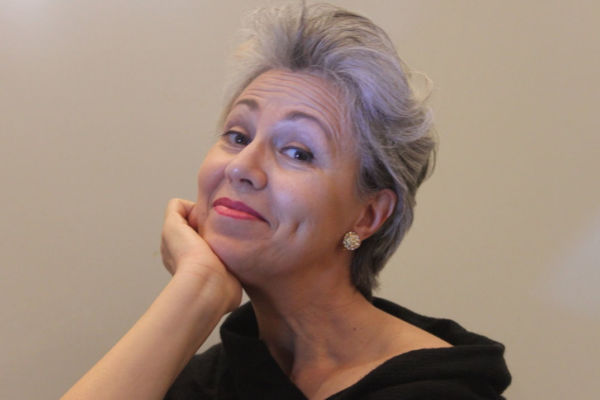
SARA MINGARDO
26 AUGUST / 2 SEPTEMBER
Learn more
AGE LIMIT
35 years
ADMISSION
Mandatory audition
link to a video recording must be included in the online application
GENERAL INFORMATION
In addition to the preparation of the pieces chosen by the candidates, the course will be dedicated to the study of Italian opera from 1600 to 1750, with particular attention to recitativo. The choice of repertoire and the appropriate pieces to be presented in competitions and auditions will also be discussed.
ENTRANCE EXAMINATION
The entrance examination is by video audition only. A video recording must be sent along with the application form.
In order to demonstrate a sufficient level of practical execution, candidates must present a video of their playing one or more pieces, to be freely selected from the significant works of the Baroque repertoire.
APPLICATION DEADLINE
30 APRIL
VIOLA
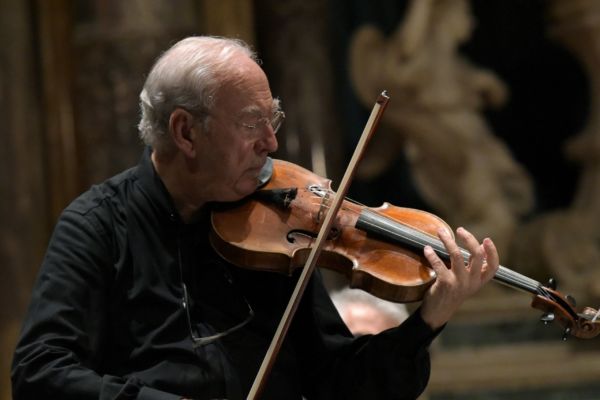
19 AUGUST / 31 AUGUST
Learn more
AGE LIMIT
30 year
ADMISSION
Mandatory audition
link to the video recording to be included in the online application
GENERAL INFORMATION
The Course is open to viola soloists.
During the Course students may perfect pieces of their own choosing by indicating them in advance on the Application Form.
ENTRANCE EXAMINATION
Candidates must present at least one piece from each of the following groups from the viola repertoire:
-
One of the Sonatas for Solo Viola by Hindemith, op. 11 no. 5 or op. 25 no. 1; one of the Suites for solo viola by M. Reger or one of the Suites by J.S. Bach transcribed from the cello part (the version of the transcription must be downloaded from www.giuranna.it);
-
One Sonata or one important composition for viola and piano (for the two Sonatas op. 120 by Brahms, it is requested that students download the version found at www.giuranna.it);
-
One Concerto or one concert piece for viola and orchestra (for the Concerto by F.A. Hoffmeister, the recommended edition is H.I. Grahl Frankfurt/M, which may be found on the site www.giuranna.it).
APPLICATION DEADLINE
30 APRIL
VIOLA
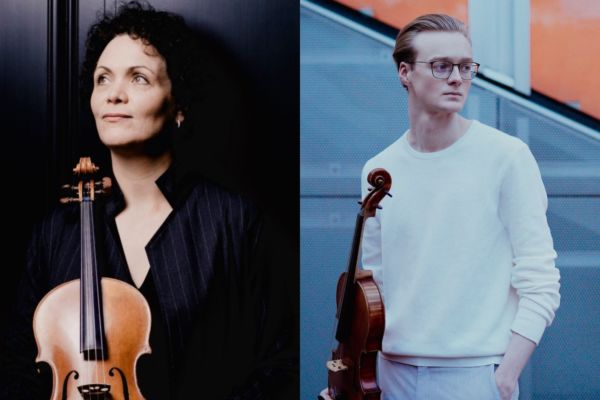
29 JULY / 10 AUGUST
Learn more
AGE LIMIT
30 years
ADMISSION
Mandatory audition
link to a video recording must be included in the online application
GENERAL INFORMATION
The course will be taught by Tabea Zimmermann (from July 29 to August 4) and by Sào Soulez-Larivière (from August 5 to 10).
The students selected as effective participants will be contacted by the instructors before the start of the course to agree on the repertoire to be addressed during the lessons.
The number of participants will be limited to 12 active students.
ENTRANCE EXAMINATION
Candidates should present two contrasting works of their choice, indicating them on the Application Form.
A motivation letter must also be sent at the same time as the online application.
APPLICATION DEADLINE
30 APRIL
VIOLA DA GAMBA
AND VIOLA CONSORT
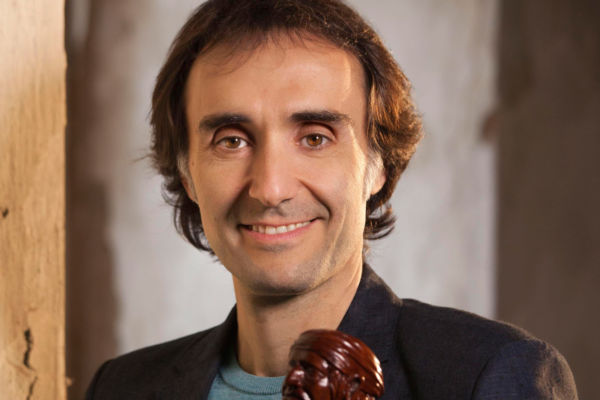
26 AUGUST / 2 SEPTEMBER
Learn more
AGE LIMIT
35 years
ADMISSION
Mandatory audition
link to the video recording to be included in the online application
GENERAL INFORMATION
The course aims to guide participants in solving problems in technique or musicality while teaching a self-learning technique that can be used at all levels.
The reflection on the nature of the musical gesture, applicable to all repertoires, will have a central part in this course.
The “secret” didactic alphabet of Marin Marais and the new sources related to him, rediscovered and studied by the Mozarteum research team, will play a significant part in the instruction of the course.
In addition to individual lessons, students will have the opportunity to practice on instruments of the Consort, deepening both their interpretative and musical techniques.
ENTRANCE EXAMINATION
The entrance examination is by video audition only. A video recording must be sent along with the application form.
In order to demonstrate a sufficient level of practical execution, candidates must present a video of their playing one or more pieces, to be freely selected from the significant works of the Baroque repertoire.
APPLICATION DEADLINE
30 APRIL
VIOLIN
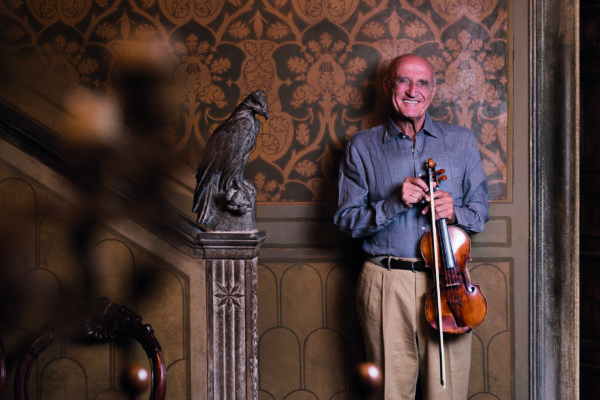
14 AUGUST / 31 AUGUST
Learn more
AGE LIMIT
30 years
ADMISSION
Mandatory audition
link to a video recording must be included in the online application
GENERAL INFORMATION
This Course is divided into two sections with two different instructors. Both sections may be filled, or the course may be limited to only one section.
During the Course, students may perfect pieces of their own choosing, to be indicated in advance on the Application Form.
ENTRANCE EXAMINATION
The admission exam is by pre-recorded video audition.
Examination programme:
a) Paganini, one Capriccio to be chosen by the candidate;
b) J. S. Bach, one movement from the Sonatas and Partitas for solo violin chosen by the candidate;
c) Mozart, one movement from a Concerto chosen by the candidate;
d) one movement from a Concerto for violin and orchestra chosen by the candidate (to be indicated on the Application Form).
During the Course students may perfect any compositions from the violin repertoire, by indicating their choices in advance on the Application Form.
APPLICATION DEADLINE
30 APRIL
VIOLIN
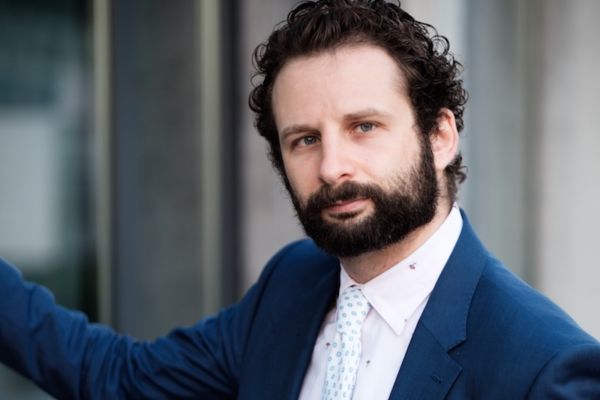
31 JULY / 13 AUGUST
Learn more
AGE LIMIT
30 years
ADMISSION
Mandatory audition
link to the video recording to be included in the online application
GENERAL INFORMATION
This Course is divided into two sections with two different instructors. Both sections may be filled, or the course may be limited to only one section.
During the Course, students may perfect pieces of their own choosing, to be indicated in advance on the Application Form.
ENTRANCE EXAMINATION
The admission exam is by pre-recorded video audition.
For the entrance examination candidates are free to choose their own program from the violin solo repertoire or the repertoire for violin and piano. The selected pieces should be indicated on the application form.
During the Course students may perfect compositions of their own choosing from the entire violin repertoire, indicating their choices in advance on the Application Form.
APPLICATION DEADLINE
30 APRIL
BAROQUE VIOLIN
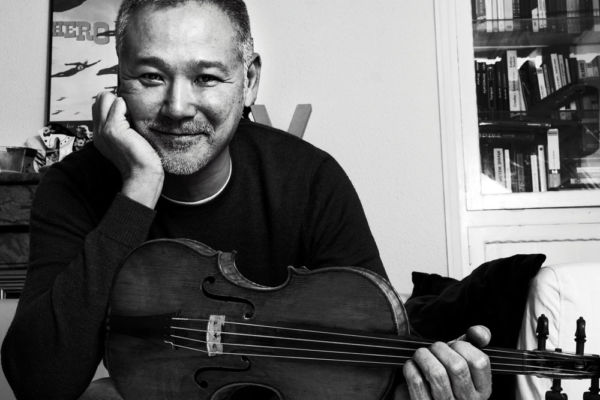
26 AUGUST / 2 SEPTEMBER
Learn more
AGE LIMIT
35 years
ADMISSION
Mandatory audition
link to the video recording to be included in the online application
GENERAL INFORMATION
“From the time it was invented in the 16th century to the present day, this small four-stringed instrument called the violin has inspired great composers and virtuosos to create music that embodies the essence of European culture.
To remain this successful for over four centuries the violin and its bow needed to adapt and change constantly and with them the playing technique.
The aim of this course is to discover different ways of thinking about music and the changes in aesthetic concepts from early Baroque to Classical. Using historical instruments and different playing techniques for a wide range of styles will help us experience and play the music in a surprisingly fresh and direct way.
At this point I also want to encourage players of modern violin to take part in this course by trying to use gut strings and Baroque/Early Classical bows”.
ENTRANCE EXAMINATION
The entrance examination is by video audition only. A video recording must be sent along with the application form.
In order to demonstrate a sufficient level of practical execution, candidates must present a video of their playing one or more pieces, to be freely selected from the significant works of the Baroque repertoire.
APPLICATION DEADLINE
30 APRIL
APPLICATION AND REGULATIONS
Article 1: Application and Attendance
1.1 The Accademia Musicale Chigiana accepts applications from two types of students: active students, who meet the eligibility criteria and pass the admission exam, and auditor students, who may attend classes without participating actively.
1.2 Through the Transcultura – Chigiana Program, only active student participation is allowed, subject to passing the admission exam.
Article 2: Eligibility
2.1 The program is reserved to…
2.2 Candidates must hold an academic degree equivalent to an Italian second-level degree to be eligible (i.e. Laurea Magistrale). Specific exemptions are detailed for certain courses.
2.3 A variety of courses are available for application, including but not limited to Singing, Guitar, Strings, Piano, Composition, Woodwinds, and Orchestra Conducting.
2.4 Prospective students must submit their video auditions by April 30, 2024, through the dedicated online form on the Accademia Musicale Chigiana official website.
2.5 Enrollment is strictly for individual participants, (pre-formed groups are explicitly excluded) and students may not attend more than one course.
Article 3: Required Documents
3.1 Applicants must submit a valid passport, certificate of residence, diplomas or certificates of music studies, and a curriculum vitae with their application.
Article 4: Age Limit
4.1 Regular students are subject to an age limit specified for each course, requiring proof of date of birth. Please check age requirements carefully on the official website at chigiana.org.
Article 5: Attendance
5.1 Full attendance is mandatory, with allowances for limited absences as specified by the course length and teacher’s approval. Students are expected to participate in all masterclasses related to their course.
Article 6: Online Application Form
6.1 Applications must be submitted online by April 30, 2024, with specified details and links to audition videos (only YouTube and Vimeo platforms). The Transcultura – Chigiana Program candidates are exempt from the application fee
Article 7: Admission Exams
7.1 Admission involves a video audition submission, with the selection of candidates at the discretion of the Maestros conducting the courses.
Article 8: Tuition and Fees and Benefits
8.1 The Transcultura secretariat covers application-examination and attendance fees for the candidates who pass the assessments.
8.2 The Transcultura Chigiana Program covers all expenses for the accepted students: instructions, airfare travel, room and board, cultural activities, and tickets to the Chigiana International Festival concerts.
Article 9: Certificates and Practice Rooms
9.1 Active students receive a certificate of participation, with merit and honor diplomas for outstanding students. Practice rooms are available upon reservation.
Article 10: Terms of Stay for Foreigners
10.1 Foreign students must ensure they have health insurance and, if necessary, a visa for their stay in Italy.
Article 11: Instruments
11.1 The Accademia Musicale Chigiana can make some instruments that are difficult to transport (such as double bass, cello, harp, percussion) available to musicians who explicitly request them.
A limited number of pianos are available for student use – with precedence given to active students of the Courses for Piano or Chamber Music with Piano – on the Academy premises.
APPLICATIONS ARE NOW CLOSED
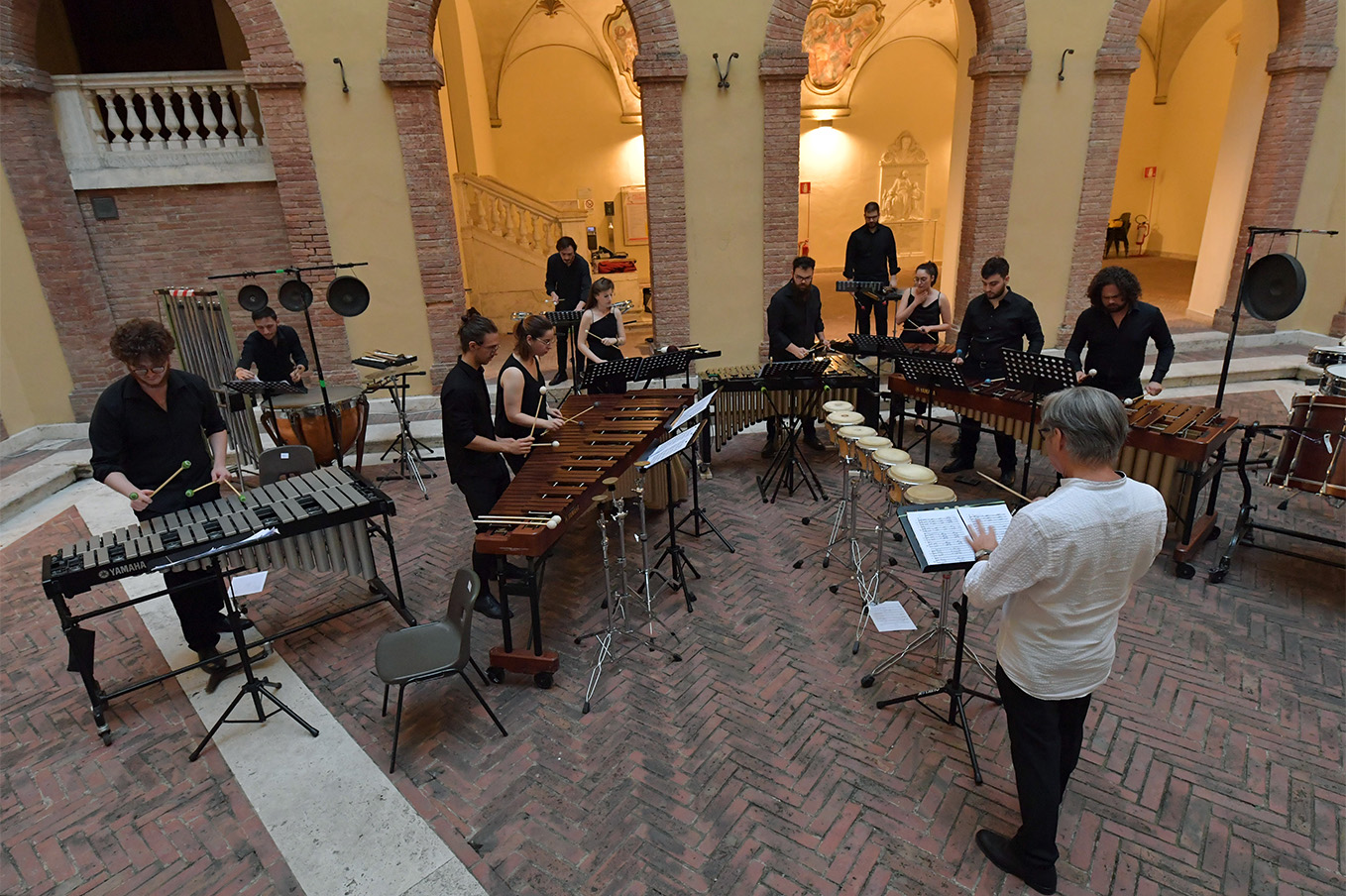
The Accademia Chigiana’s Summer Academy courses are supported by the Region of Tuscany, specifically through Intervention 10, which is focused on “Basic music training and music education projects”. This support falls under the DEFR 2020 and is part of the Regional Project 4 titled “Great cultural attractors, promotion of the arts system and of cultural institutes”. This particular funding is aimed at the organization of professional training courses for musicians, singers, and other professional figures, as well as production activities that complement and integrate with qualification courses offered by Institutions of Higher Musical Education. This is in accordance with Article 46, paragraph 1 of the regional law (l.r.) 21/2010.
